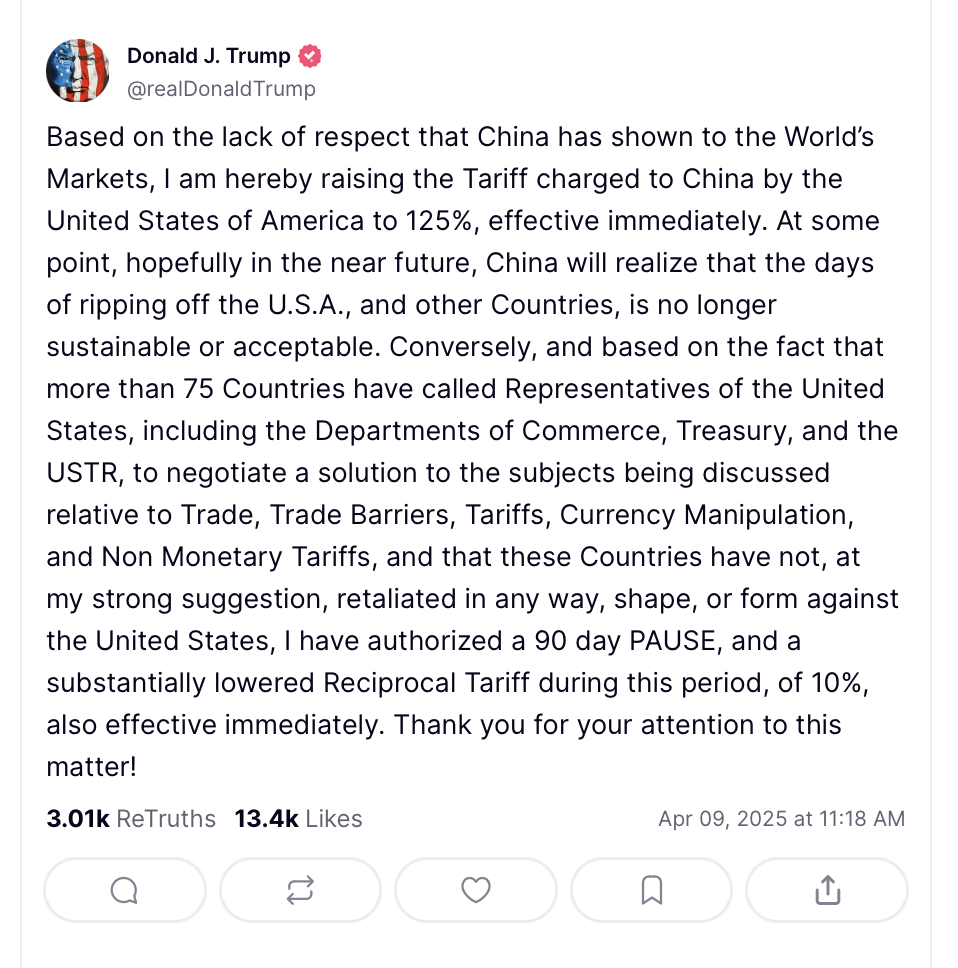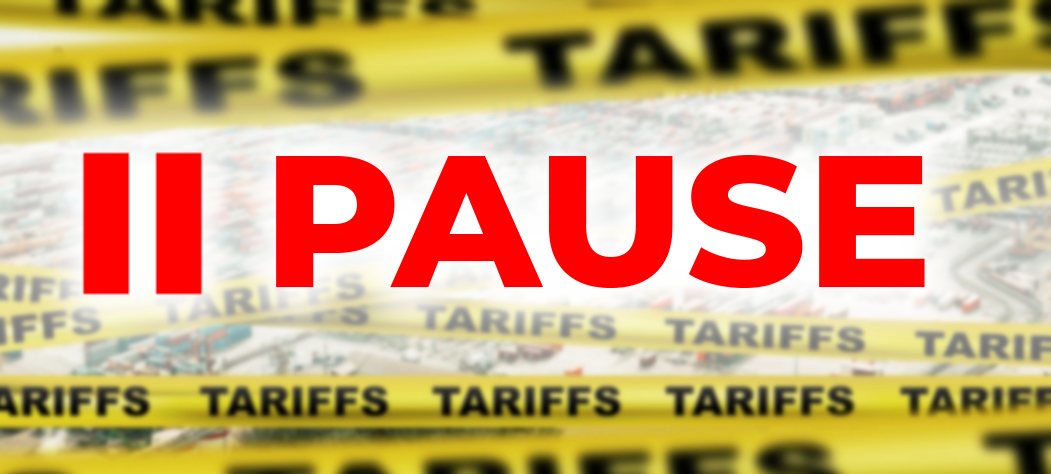
The changes were confirmed in a statement shared by former President Donald Trump on Truth Social and are expected to impact global supply chains, trade negotiations, and sourcing strategies for businesses across multiple sectors.
90-DAY TARIFF PAUSE AIMS TO SUPPORT ONGOING NEGOTIATIONS
According to the announcement, over 75 countries have recently contacted U.S. officials at the Departments of Commerce, Treasury, and the Office of the U.S. Trade Representative (USTR) to begin or continue negotiations on matters related to trade barriers, tariffs, and currency practices.
In response, the U.S. has initiated a 90-day pause on planned tariff increases, applying a reduced 10% reciprocal tariff for participating countries during this period.
This measure is intended to create a constructive environment for dialogue, reduce uncertainty, and allow space for trade partners to work toward potential agreements.
TARIFFS ON CHINESE IMPORTS INCREASED TO 125%
While the U.S. has extended a 90-day tariff reduction to many of its global trading partners, it has simultaneously raised tariffs on Chinese imports to 125%, effective immediately.
This significant increase applies to a broad spectrum of goods and reflects a targeted policy adjustment focused on long-standing concerns related to trade imbalances, intellectual property protections, market access, and regulatory transparency.
According to the official announcement, the decision stems from what U.S. leadership described as ongoing issues with China’s trade practices, including currency policies and perceived disadvantages for U.S. companies operating in or sourcing from China. This tariff action is distinct from the broader 90-day negotiation framework offered to other countries and underscores a more assertive stance in the bilateral trade relationship.
Stay up-to-date on freight news with Green’s Weekly Freight Market Update by following us on LinkedIn. For continuous updates, make sure to check out our website at greenworldwide.com.



